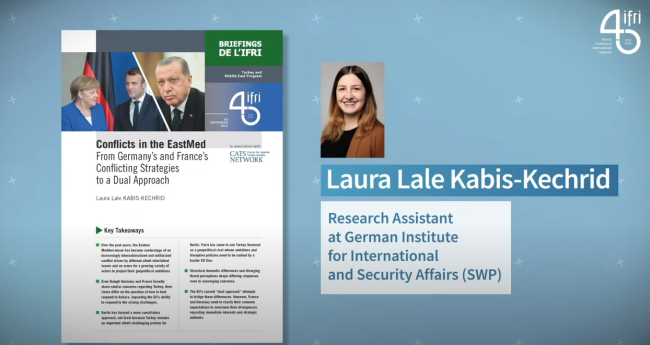
The Wider Context: Germany's Baltic Engagement, the ‘Munich Consensus’ and the Future of European Security

The German Debate on Country’s Security: Different Discourse, Same Paradigm
Recent debates in Germany about the future of the country’s security and foreign policy have aroused interest abroad, especially in France.

Tyskland - stormakt mot sin vilja?
In this article our research fellow Barbara Kunz summarises the broad outlines of German foreign policy to the Swedish public.
The “2014 Review”: Understanding the Pillars of German Foreign Policy and the Expectations of the Rest of the World
German foreign policy is today confronted with a number of fundamental challenges. The country has become larger and has again become strong economically and must no longer content itself with its former role as France’s political junior partner in Europe or the United States’ junior partner in the world. At the same time, Berlin is far from being fully prepared for taking over this new role – deficits are both strategic and conceptual.

Germany's Unnecessary Hegemony
Based on the realist theory of international relations, this article analyses whether Germany has any incentives to seek (regional) hegemony. It concludes that under the current systemic circumstances – in which the country's survival is ensured by the United States – Germany has no reason to become a hegemon, which is normally a strategy to escape the perils of the anarchic international system.
Germany and the Arab Spring
Much of the analyses of German reactions to the Arab Spring uprisings have focused on Germany’s contentious decision relating to Libya. By siding with the critics of military intervention in abstaining from UNSC 1973, Germany vexed its allies and arguably displayed an astonishing lack of geostrategic foresight and moral rectitude.
Conflicts in the EastMed: from Germany's and France's Conflicting Strategies to a Dual Approach.
This week, Ifri, in partnership with CATS Network, is launching a series of five videos on the tensions in the Eastern Mediterranean, seen through the prism of the geopolitical rivalry between France and Turkey.


French Complain of Germany's 'Political Infidelity'
"Thirty years of infidelity" is how France's current affairs magazine Marianne describes Germany's relationship with France. An issue this month was devoted to how Germany has been "fleecing France" for years.
Support independent French research
Ifri, a foundation recognized as being of public utility, relies largely on private donors – companies and individuals – to guarantee its sustainability and intellectual independence. Through their funding, donors help maintain the Institute's position among the world's leading think tanks. By benefiting from an internationally recognized network and expertise, donors refine their understanding of geopolitical risk and its consequences on global politics and the economy. In 2025, Ifri supports more than 80 French and foreign companies and organizations.









